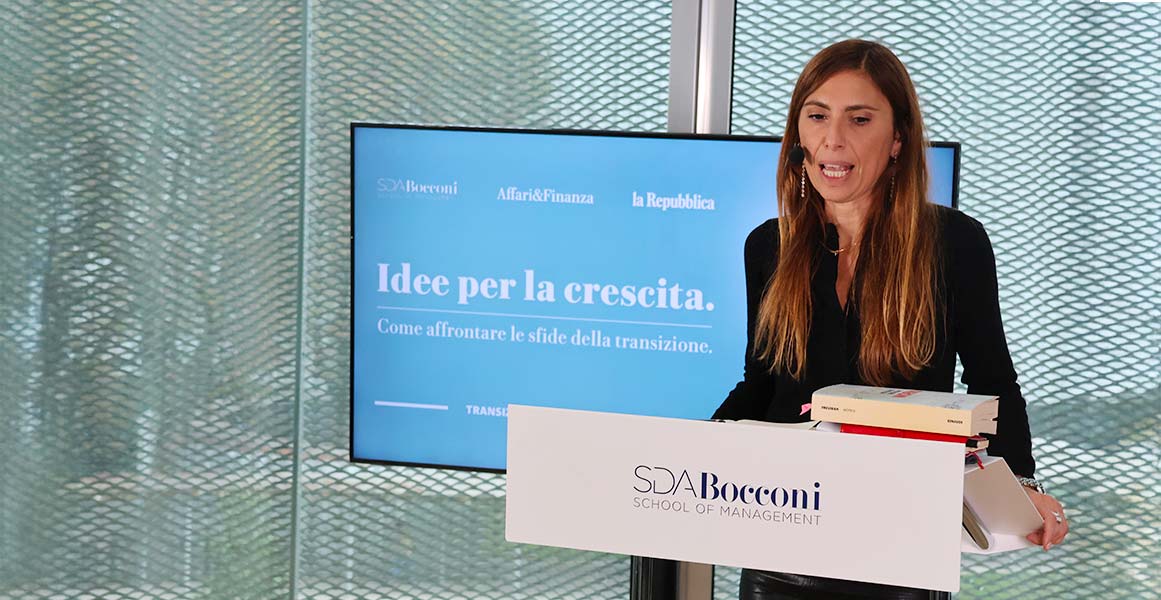MAKING YOUR STRATEGY SUCCEED
Executive Education Open Program: GETTING THINGS DONE
Turning a project into an actually doable task is a simple concept, but it doesn’t always come true in real life. That’s why it’s essential to be clear on which key factors can lead you to carrying out a business objective successfully.
That's the rationale behind the SDA Bocconi Executive Program Getting Things Done, where Stanford 's Jeffrey Pfeffer is once more lecturing next October, with our Masters Division's Associate Dean Marco Tortoriello. Together they will cover the topic of feasibility throughout an organization's life: the future of organizations certainly depends on their ability to look ahead, to make long-term plans; but no less on their ability to make these plans truly applicable, to work concretely on execution, starting on the here and now; in other words, strategy with its feet firmly on the ground.
Jeffrey Pfeffer, Professor of Organizational Behavior at the Stanford Graduate School of Business, is one of the most influential contemporary thinkers in the field of management and has spent his professional life looking for the key to how organizations work, and for the levers that move individuals within them. After being a guest at SDA Bocconi last November for both the first edition of the Getting Things Done Course and the HR Leaders’ Dialogues – Pfeffer will be back next 22 and 23 October, for the Getting Thing Done's second edition.
“Doing the right thing is important, which is where strategy comes in. But doing that thing well – execution – is what sets companies apart,” Pfeffer says. “Successful organizations understand the importance of implementation, not just strategy, and, moreover, recognize the crucial role of their people in this process.”
People, according to Pfeffer, are the keystone in any organization's architecture. Their thinking, their behavior, their relationships can support and grow the organizations themselves or decide their collapse. In the past few decades, Pfeffer has made important contributions to the international debate in the field of Human Resources Management, with numerous publications. His latest book also has a title that is an indictment of a certain way of understanding and managing human resources: Dying for a Paycheck. How Modern Management Harms Employee Health and Company Performance.
People, according to Pfeffer, are the keystone in any organization's architecture. Their thinking, their behavior, their relationships can support and grow the organizations themselves or decide their collapse. In the past few decades, Pfeffer has made important contributions to the international debate in the field of Human Resources Management, with numerous publications. His latest book also has a title that is an indictment of a certain way of understanding and managing human resources: Dying for a Paycheck. How Modern Management Harms Employee Health and Company Performance.
This concept was also stressed in an interview given a few months ago: “Many, I dare say most, managers are remarkably unconnected to the evidence in front of them and the social science literature that would make them more effective in doing their jobs,” stated the professor. He also added: “What I would recommend to leaders would be: 1) become much more intellectually curious about the world of organizations and management; 2) read much more of the relevant research literature that will help you do your job better; and 3) try to practice evidence-based management – where decisions are based on facts, not on casual benchmarking or intuition.”
An advice he is ready to share with his next SDA Bocconi executive students.
SDA Bocconi School of Management
SDA Bocconi School of Management
25 November 2024
Leaders in Finance: Alessandro Basile, CFO ...

MCF - Master in Corporate Finance
25 November 2024
Only when work has meaning can growth be ...

Ideas for Growth by SDA Bocconi-Repubblica
22 November 2024
Leaders in Finance: Luxembourg Private Equity ...

MCF - Master in Corporate Finance


